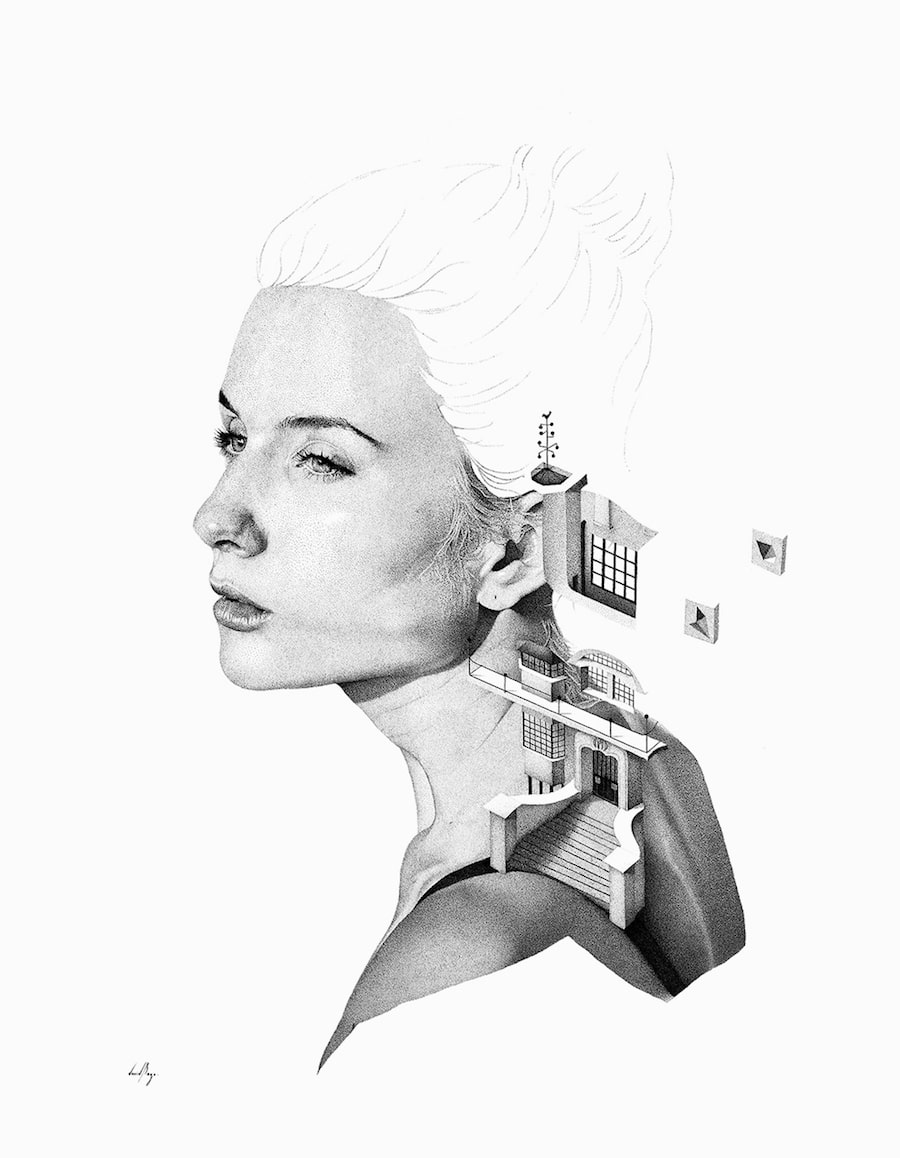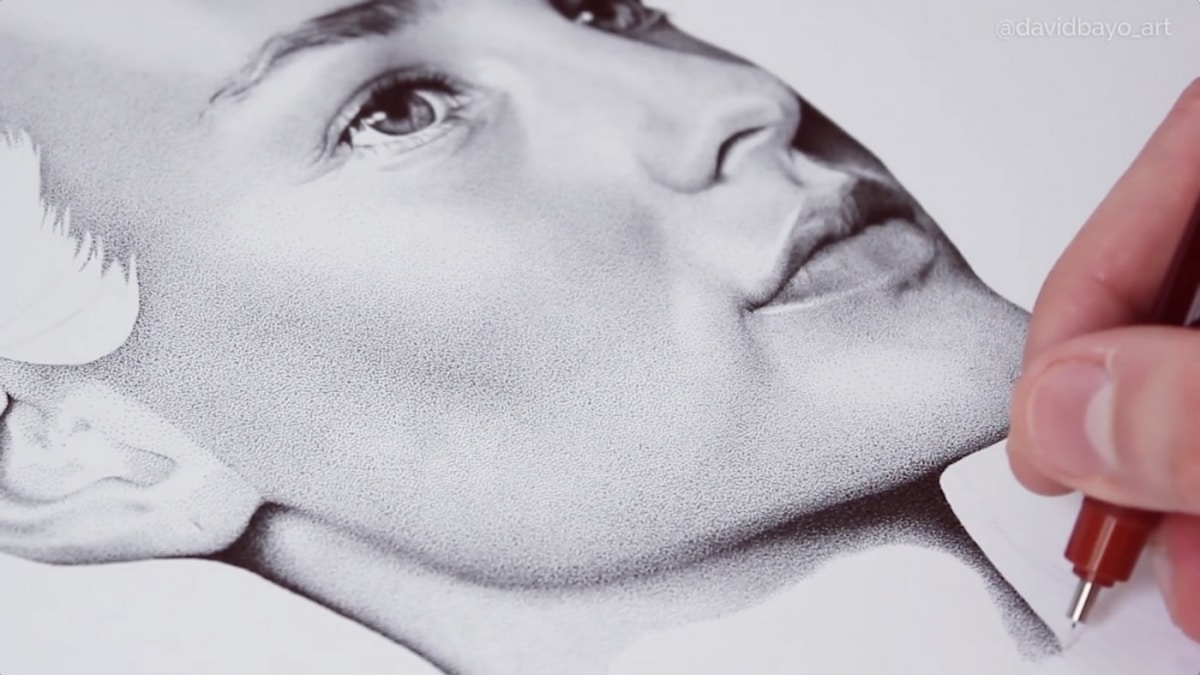
Artist extraordinaire David Bayo has an all-embracing approach to his craft. Putting a spin on conventional drawing and painting techniques, the French creative produces a range of work, including intricate white charcoal drawings, whimsical water art, and, most recently, highly-detailed stippled portraits rendered in graphite.
Each of these speckled creations is composed of millions of meticulously placed, hand-drawn dots. Through this tedious method, Bayo is able to achieve an impressive level of tonality and an amazing amount of detail. These jaw-dropping pieces take days to complete, culminating in a portfolio that showcases not only the artist’s apparent skill, but his undeniable dedication, too.
Bayo documents the process (and patience) behind each eye-catching composition in a series of captivating videos. Additionally, he films the equally mesmerizing methods behind his black paper animal portraits and unique water paintings. You can find these videos on his YouTube channel, as well as limited edition prints of his eclectic work through his online shop.
We recently spoke with Bayo about his awe-inspiring art, his inspiration, and the processes behind his eclectic practice. Read on for our exclusive interview.
As a self-taught artist, how did you first get involved with art?
I seriously got involved with art during my last year of high school. It was a tough period of my life but also sort of a ground-breaking year. I discovered many artists back then that I still follow today. I developed a visual literacy and deepened my sensitivity. The feeling that I had to find my own voice and explore my own path kept growing to the point that I had to start expressing myself. There was an urge—it all came from a very needy place.
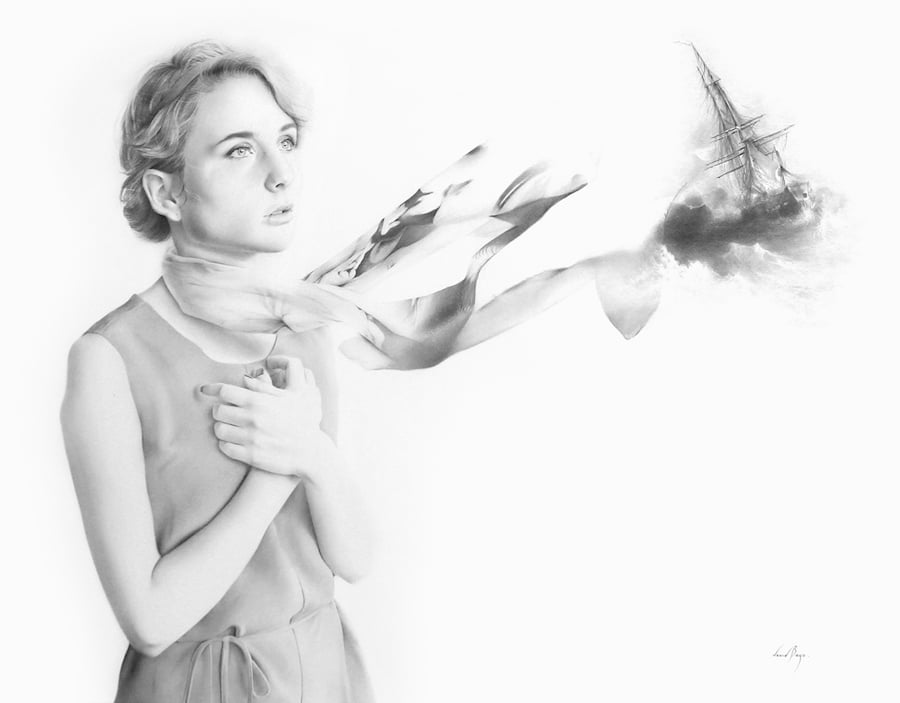 Much of your work is created using dots. Can you describe this approach and the process behind each piece?
Much of your work is created using dots. Can you describe this approach and the process behind each piece?
I consider myself to be versatile. I have gotten into stippling lately, which are drawings made of tiny dots (lots of tiny dots…). It is similar to Pointillism (except that there is no color in stippling) made popular by French artists such as Seurat.
First I do a lot of research, start composing a mental image of what I want and then I do some sketches. If I am satisfied with the overall layout, then comes the big deal: filling out the piece with millions of dots (my latest work has around 3 million dots). I progressively add layers until I reach a grainy texture that I am very fond of.
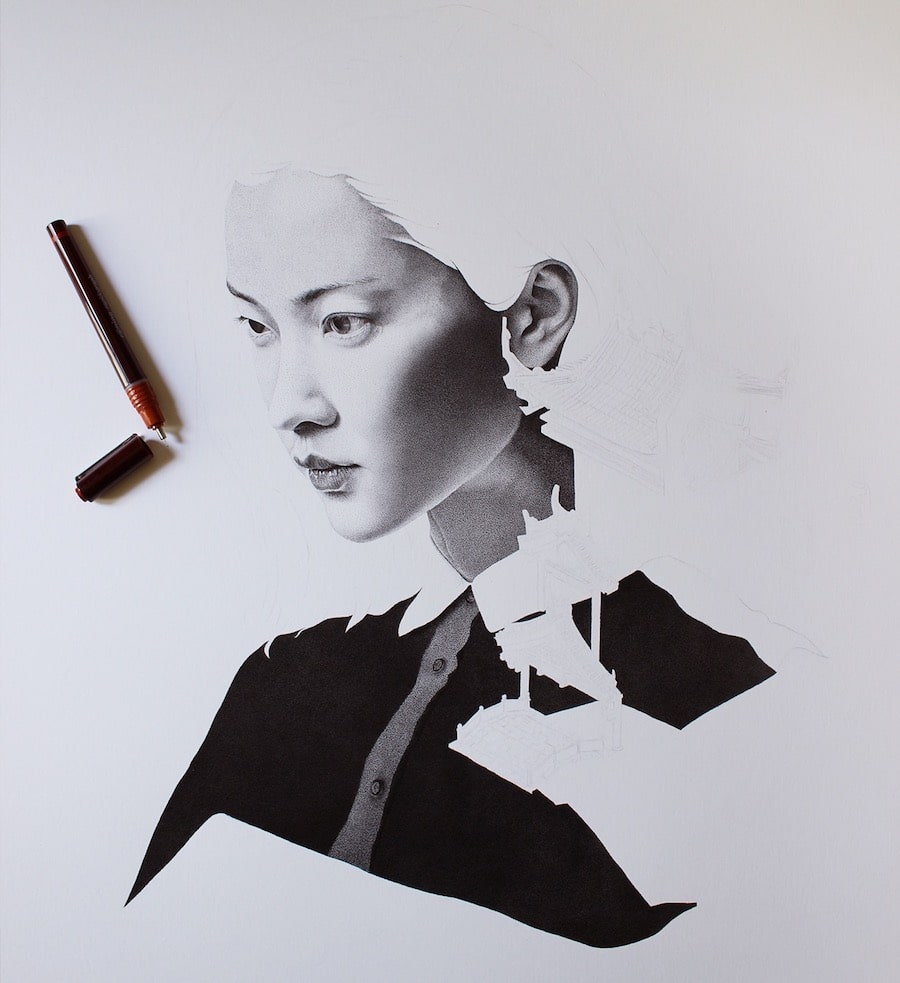
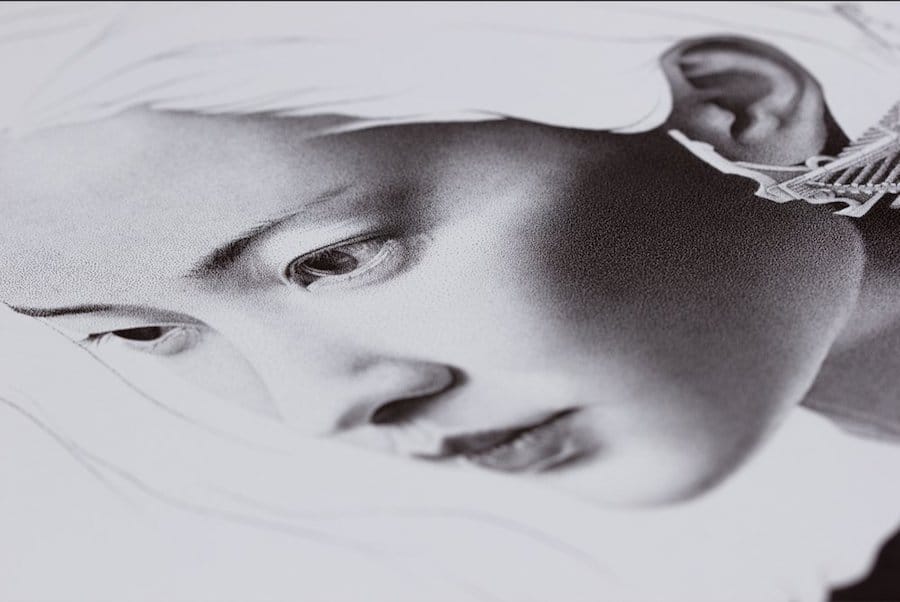
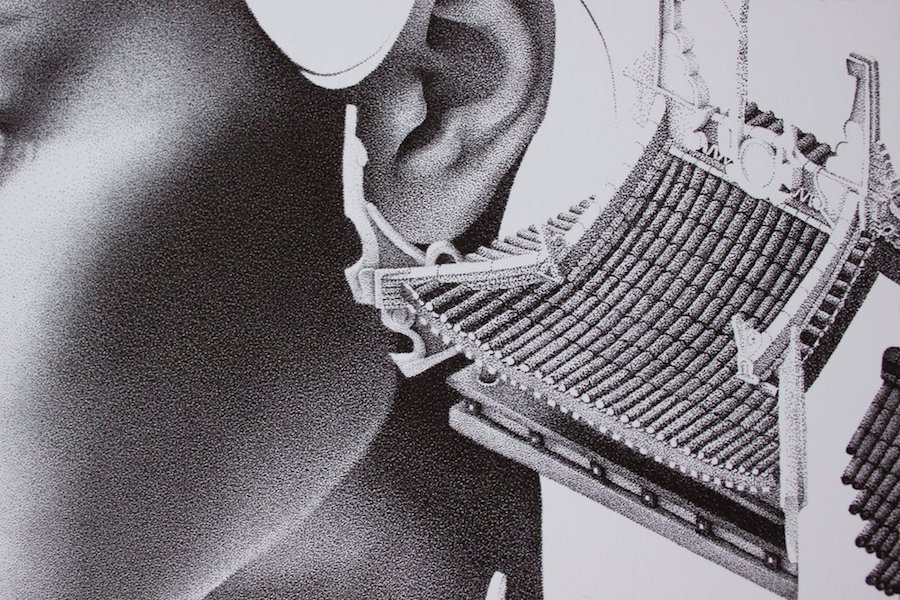 What do you find challenging about stippling?
What do you find challenging about stippling?
Patience and dedication are key and time should never been a constraint. That would be a pretty good motto for stippling. I can spend up to 300 hours on a single piece. It is really tedious and maddening. But definitely worth it. I am not trying to break a record or anything, I just have to do what the work demands and there is no room for laziness.
You use graphite for these stippled human portraits, and white charcoal for your drawings of animals. What are the benefits of each medium, and what inspired your interest in these subjects?
The medium that I use predominantly depends upon the subject and style that I wish to represent. Each medium has something unique that should best enhance the subject.
When I work on a female portrait, I enjoy using graphite because it gives a soft and evanescent tone to the piece. However, when I draw animals, the style is closer to Renaissance‘s chiaroscuro, with strong contrasts between light and dark. For that, white charcoal suits perfectly.
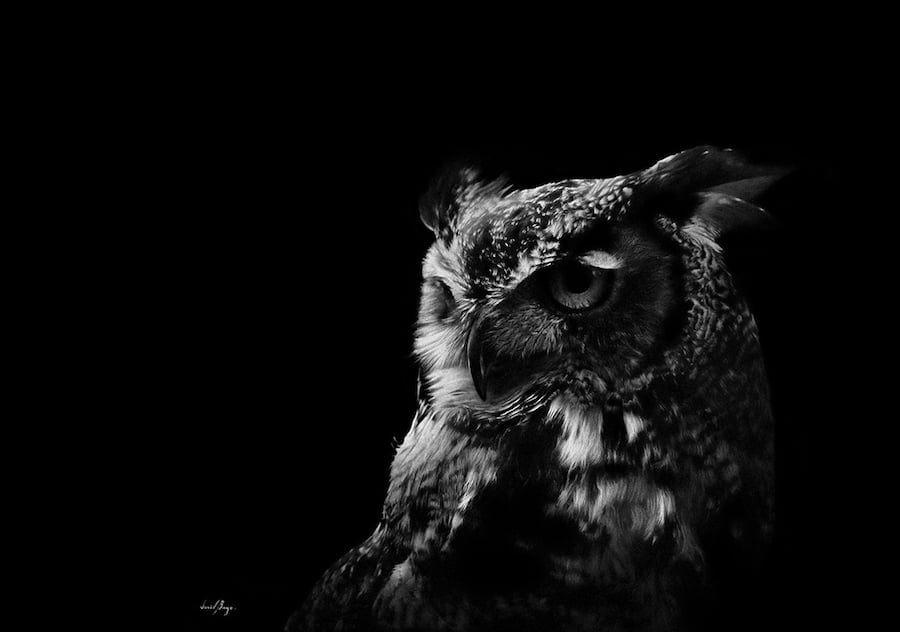
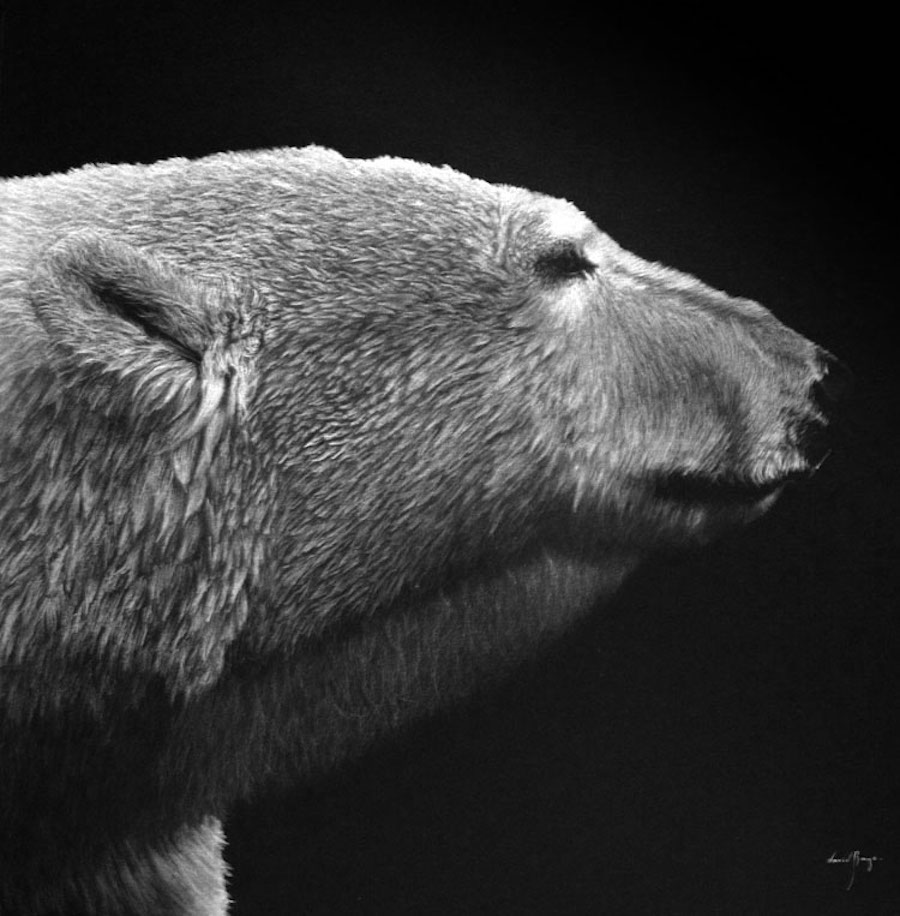
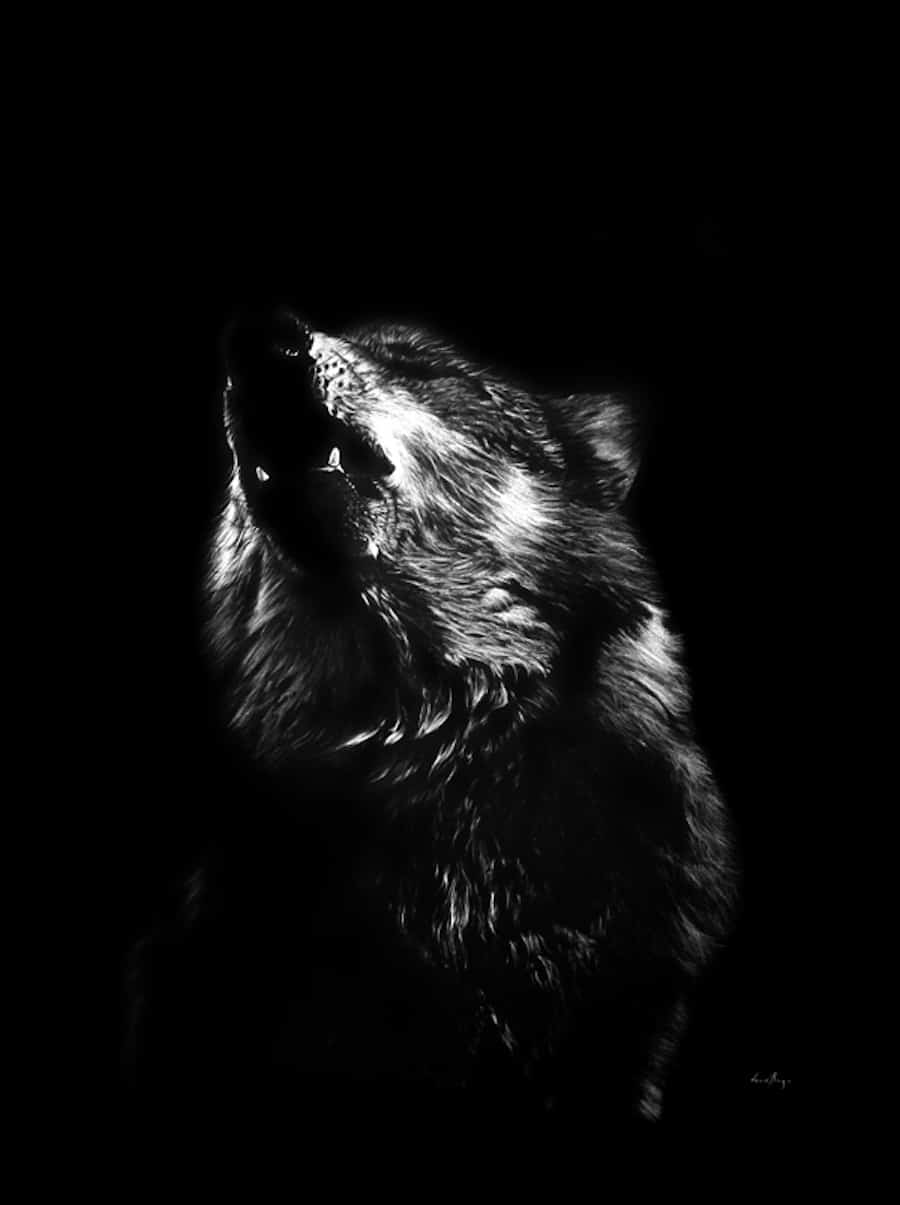
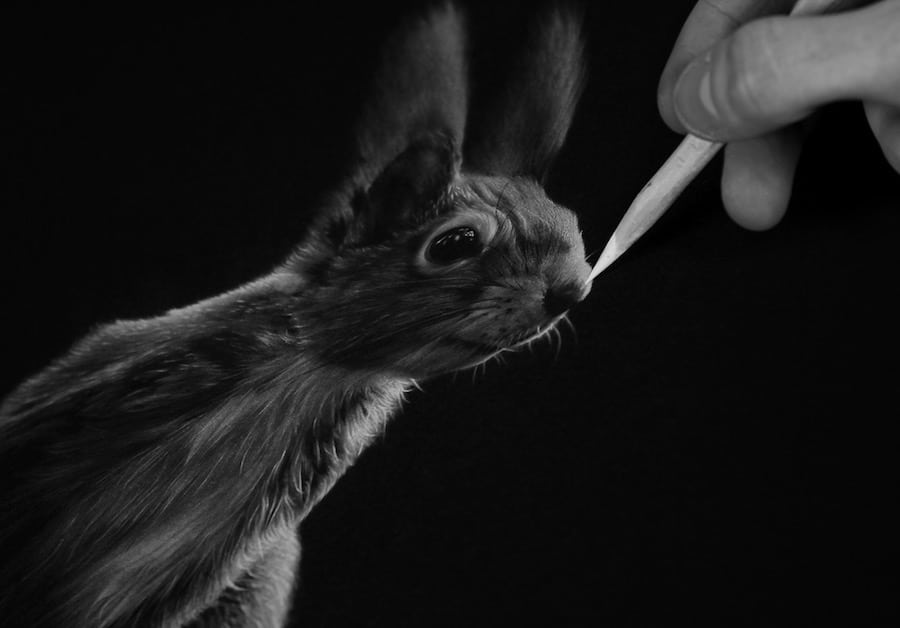 You also often work in a “water art” style. Can you explain this unique form of art?
You also often work in a “water art” style. Can you explain this unique form of art?
Water art is a very simple concept, but one that is extremely precarious and hard to master. I apply water on a special type of paper to which I spread ink. It is all about using the right proportion: too much water or too much ink and the result will be inevitably sloppy. I started to film the process because it is very much of a performance; the final result does not import as much as a painting or a drawing. There is a pretty magical effect when the ink spreads on paper. It is also a good testament that you do not have to spend millions to achieve compelling visual performances/special effects.
We love your work! Do you have any upcoming projects or plans?
Thanks a lot for your interest, I’m a big fan of My Modern Met! My next stippling piece will combine various African ethnic groups and folklore tradition. It will be challenging and exciting.
David Bayo: Website | Instagram | Facebook | Behance | Twitter | YouTube | Store
My Modern Met granted permission to use photos by David Bayo.
Related Articles:
Artist Patiently Creates Complex Floral Drawing with 8 Million Stippled Dots
Countless Meticulously-Stippled Dots Form Fantastical Drawings
Exploring the Vision and Diverse Styles of Post-Impressionism Pioneers

